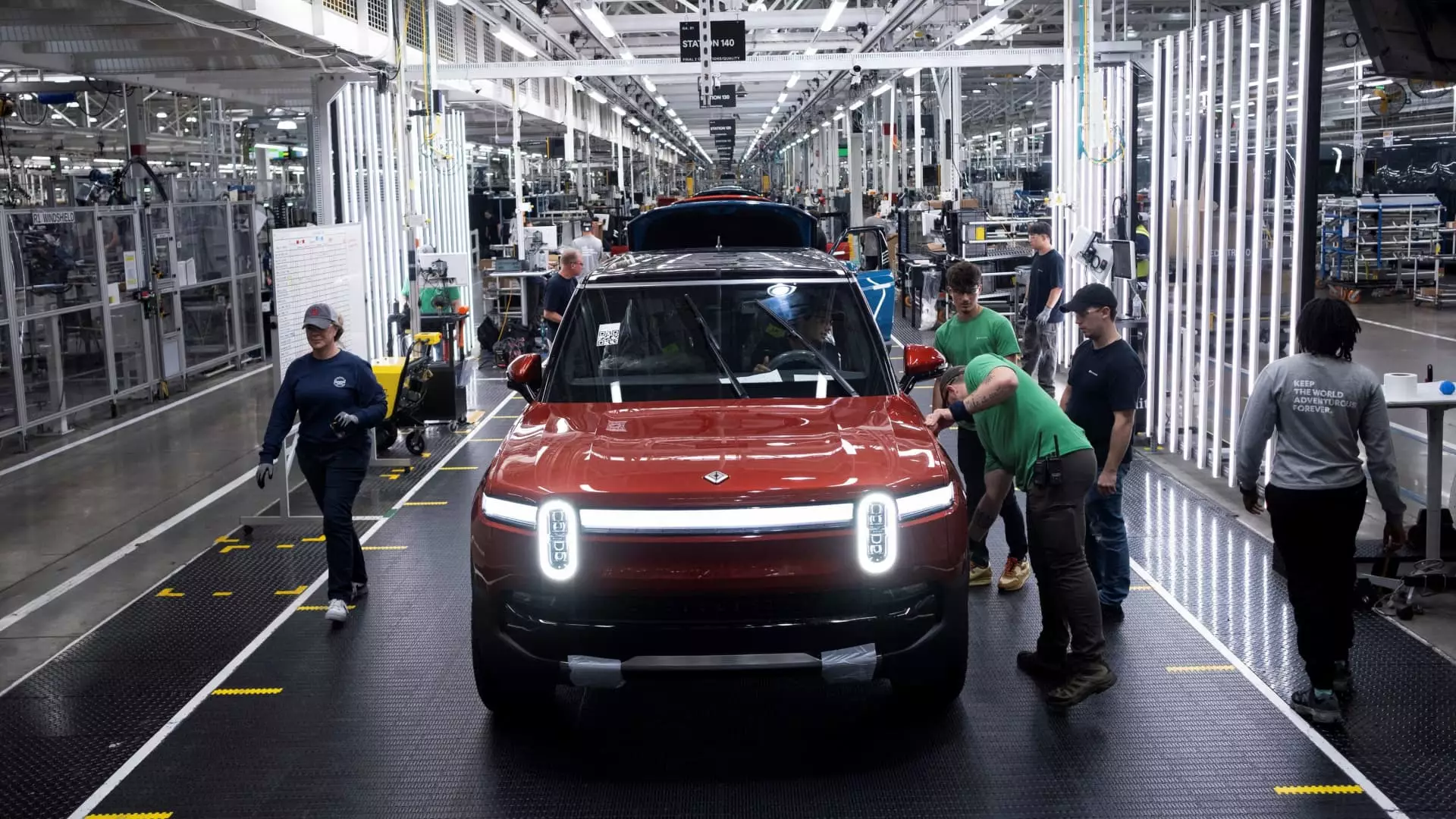Rivian Automotive, a prominent player in the electric vehicle (EV) sector, faced a notable decline in its stock value, dropping approximately 4% during early trading sessions on a recent Friday. This downturn is a direct response to the company’s disappointing third-quarter vehicle deliveries, which fell short of analyst expectations. Rivian’s struggles are compounded by its decision to revise its 2024 production forecast downward, revealing significant concerns about its manufacturing capabilities amidst an increasingly competitive market landscape.
The company’s announcement to cut its annual production target from a previously ambitious 57,000 units to a more modest range of 47,000 to 49,000 units is alarming, especially for stakeholders invested in Rivian’s growth trajectory. According to Rivian, these cuts are attributed to a “production disruption due to a shortage of a shared component” critical to its R1 vehicles and commercial vans. The acknowledgment of supply chain issues not only points to internal deficiencies but also highlights the broader vulnerabilities within the EV manufacturing landscape, where dependence on multi-tiered suppliers can severely impact production agility.
Rivian’s CEO, RJ Scaringe, expressed the company’s ongoing struggles during a recent investor conference, emphasizing the difficulties linked to various suppliers and specific issues surrounding in-house motor components. This admission provides a rare glimpse into the operational challenges of a startup trying to scale amidst fierce competition from established automotive giants and fledgling startups alike. While Scaringe’s comments underscore transparency, they also raise concerns about Rivian’s ability to navigate its supply chain complexities effectively.
Despite these obstacles, Rivian has maintained its annual delivery projections, anticipating low single-digit growth compared to 2023. The company expected to deliver between 50,500 and 52,000 vehicles by the end of the year. However, quarterly performance revealed a production of 13,157 vehicles and 10,018 deliveries. These figures fell short of the anticipated 13,000 deliveries, raising alarm bells among analysts regarding Rivian’s operational efficiency and market responsiveness. This underperformance starkly illustrates how external factors can derail even the most optimistic production schedules in a rapidly evolving industry.
As Rivian grapples with supply chain disruptions and disappointing sales figures, it reflects a broader trend within the EV market where demand has not grown as robustly as anticipated. The company has seen its stock plummet by over 50% in 2024, an indicator of investor skepticism towards its long-term viability. The challenges of cash burn in a capital-intensive industry like electric vehicles further exacerbate Rivian’s current predicament, putting the company’s future growth at risk in a market that demands both innovation and reliable production capabilities.
Rivian Automotive’s current challenges paint a picture of the complexities and unpredictabilities inherent in the electric vehicle market. As it strives to rectify supply chain woes and boost production capacities, the company will need to engage in strategic planning and bolster its operational resilience to not only survive but thrive amidst industry headwinds.

